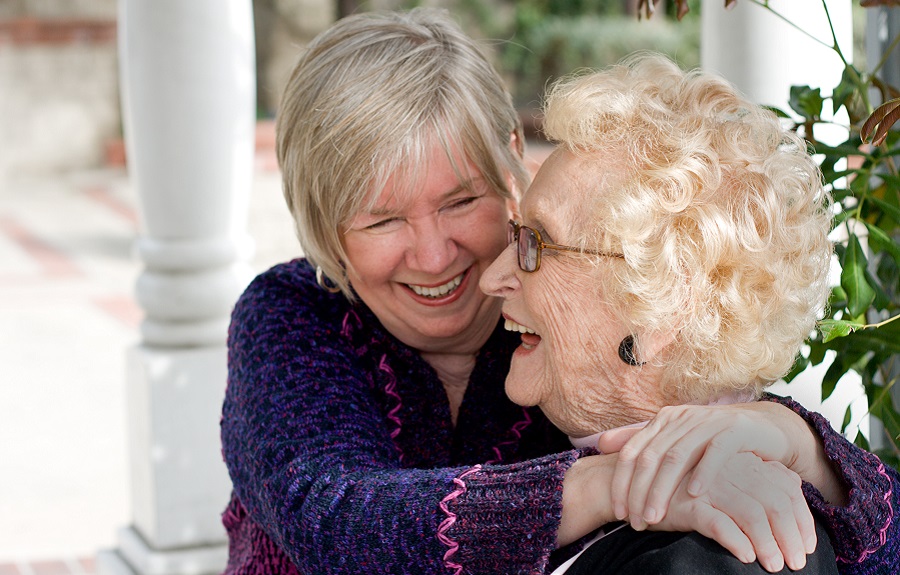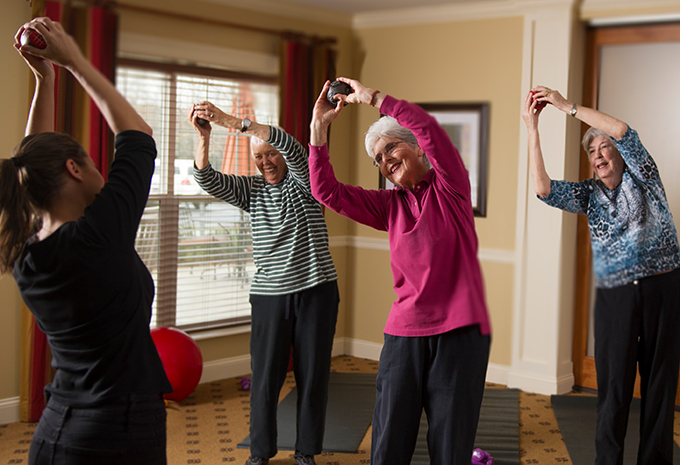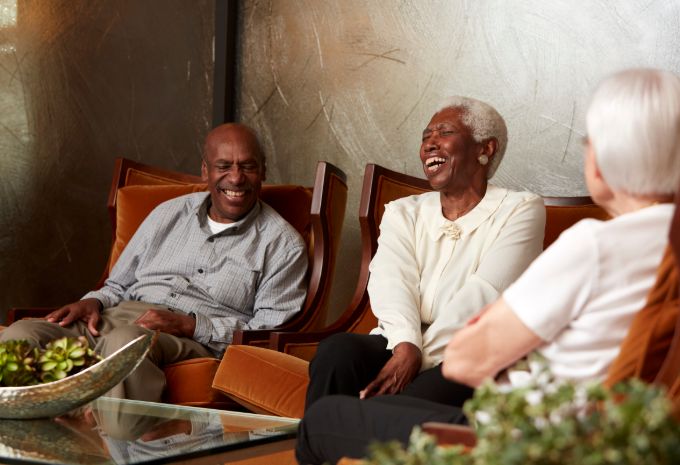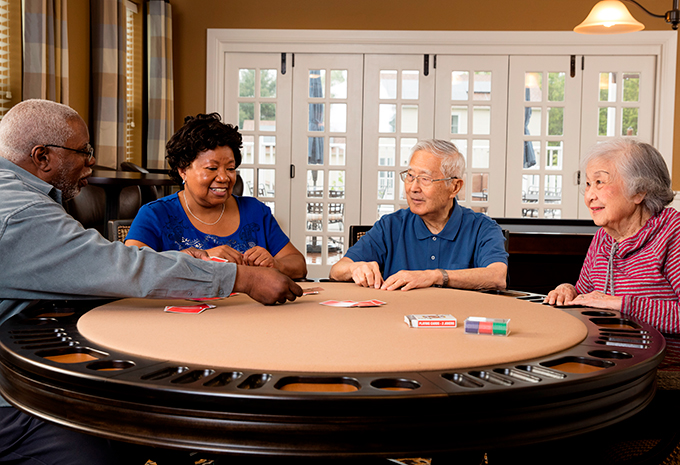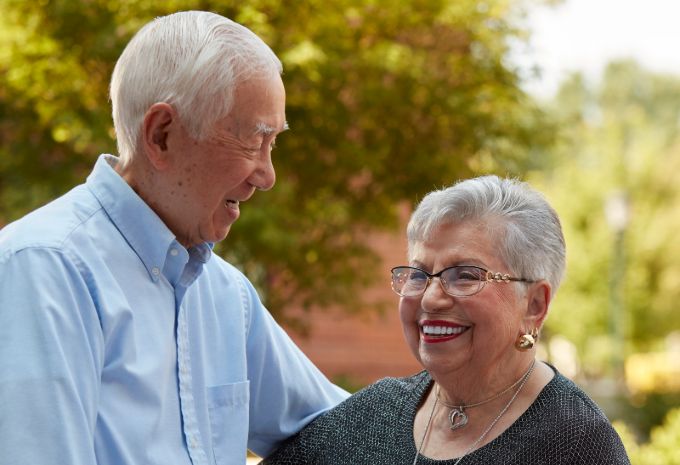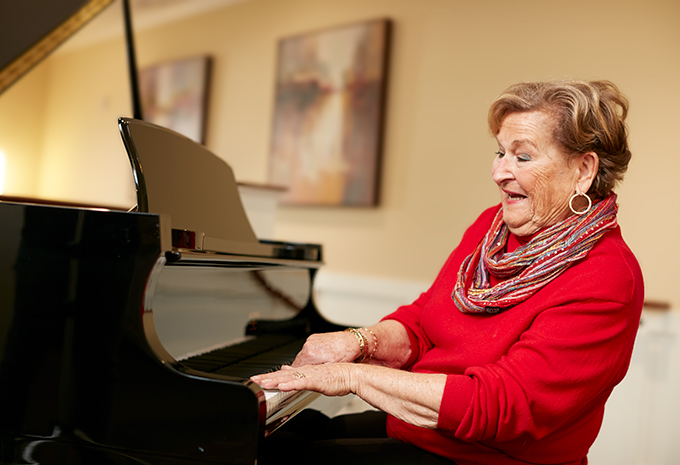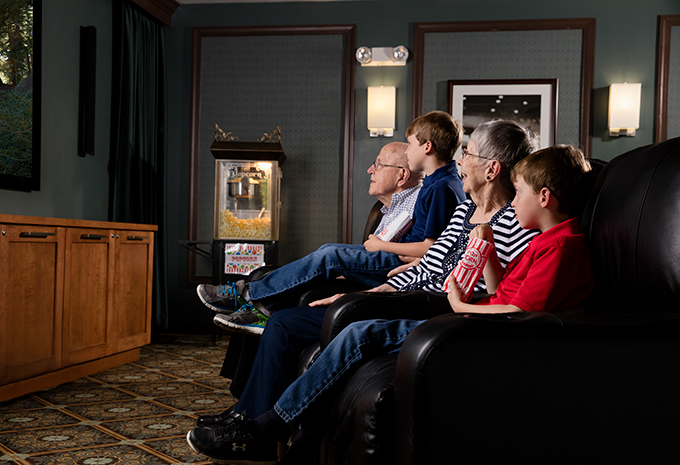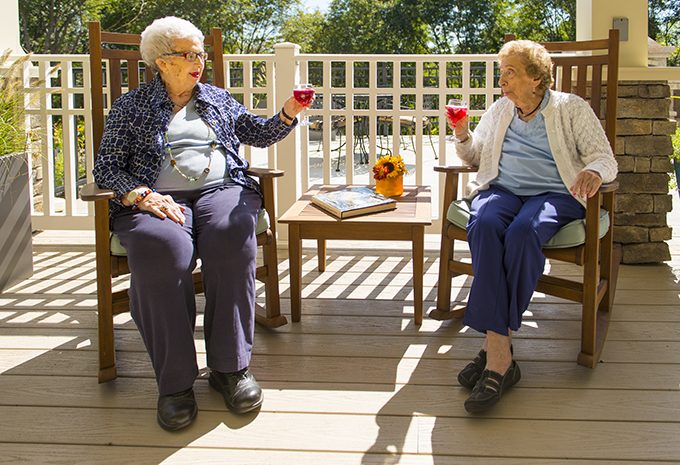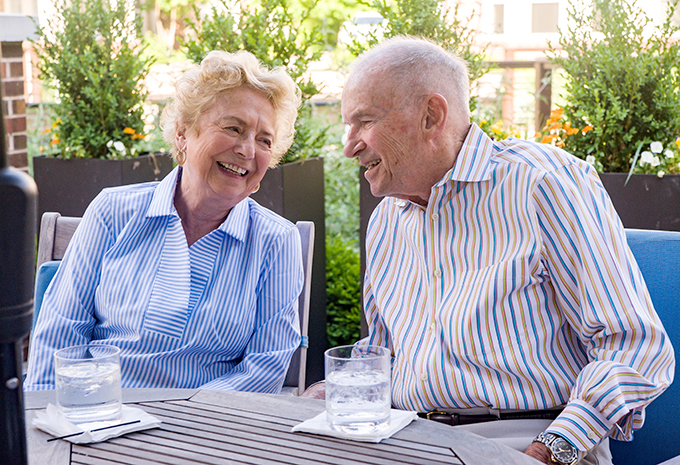Every April, the Parkinson’s Foundation engages the global Parkinson’s community to support Parkinson’s Awareness Month. It is important for us at Brightview to recognize this and do our part to help those with PD. The National Parkinson Foundation urges the spreading awareness of how the disease is developed and its impact on patients of all ages, as well as the potential to help seniors with the condition and their caregivers.
WHAT IS PARKINSON’S DISEASE?
Parkinson’s Disease is not uncommon, especially in the aging community. The Parkinson's Disease Foundation estimates 60,000 new cases of PD are diagnosed each year. While the risk of a Parkinson's diagnosis increases with age, four percent of those afflicted are diagnosed before the age of 50.
Parkinson’s disease is a chronic, progressive neurological disorder. For more than 50 years, APDA has led the charge as the nation’s largest grassroots organization serving the needs of those touched by Parkinson’s. Parkinson's disease is one of the most frequent nervous system disorders among seniors, but until now, it was unclear why this occurred. Now, scientists have determined the source of PD and how it progresses in the body.
The disease is categorized by muscle tremors and deficiency of coordination because muscle movement is controlled by dopamine, a chemical in the brain. Researchers were aware the disease transpired as nerve cells of the brain that make dopamine slowly die, but the reasoning behind why the cells get destroyed was unknown until recently.
WHAT CAUSES PARKINSON’S DISEASE?
Parkinson's disease is a progressive disorder that is induced by the degeneration of nerve cells. This takes place in the substantia nigra, the part of the brain which controls movement. These nerve cells die or become impaired, losing the ability to produce dopamine. It is not until your dopamine level gets lower than 20% that you start to really feel the effects of it. Once the dopamine level in the brain gets below 20% of what is normal, you have Parkinson’s disease whether diagnosed or not.
WHAT TO LOOK FOR AND EXPECT?
It is important to catch the progression of PD early to get ahead on specialized treatment as it is different for every person. Some of the warning signs to look out for as listed by Parkinson.org
- Tremors
- Small Handwriting
- Loss of Smell
- Trouble Sleeping
- Trouble Moving or Walking
- Constipation
- A Soft or Low Voice
- Masked Face
- Dizziness or Fainting
- Stooping or hunching Over
While all of these are warning signs of PD, no single one of these signs means that you should worry, but if you have multiple warning signs you should begin to consider speaking to your doctor.
Possible Symptoms to come
The symptoms of Parkinson’s Disease are widely varied, and some symptoms may not be known by most people. PD is most commonly known in reference to the tremor affected people may experience, but this is just one of the many difficulties people may face daily. There are many other movement-related symptoms as well as other non-motor based ones. Below is a list of the most common symptoms experienced, however since PD varies so greatly in people, not all of these are experienced by all.
Movement Symptoms
- Bradykinesia
- Dizziness or Fainting
- Drooling
- Dystonia
- Facial Masking
- Postural Instability
- Rigidity
- Stooped Posture
- Tremor
- Trouble Moving or Walking
Non-Movement Symptoms
- Anxiety
- Apathy
- Breathing Difficulties
- Loss of Smell
- Constipation Nausea
- Cognitive Changes
- Depression
- Fatigue
- Hallucinations/Delusions
- Sleep Disorders
- Small Handwriting
- Speech & Swallowing Problems
- Urinary Incontinence
- Vertigo & Dizziness
CAN YOU TREAT PARKINSON’S?
Most Parkinson's patients are prescribed medications to alleviate the symptoms associated with PD. Some common medications used are dopamine precursors, dopamine agonists, and anticholinergics. Surgery options are out there and are considered when medications have proven ineffective. Deep Brain Stimulation (DBS) of the subthalamic nucleus or globus pallidus can be effective in treating all the primary motor features of Parkinson's. Another option is thalamotomy, it can help stop tremors by placing a small lesion in a specific nucleus of the thalamus.
PARKINSON’S AT BRIGHTVIEW
Our facilities can often give the person with Parkinson’s and their family a sense of peace of mind because we have staff ready to aid those in need. Our staff offer assistance with activities and tasks of daily living, medication administration, and 24/7 licensed nursing staff on hand. Parkinson’s is a disease that we have seen many times here at Brightview, second or third to the most common dementia. PD is most common in Enhanced Care with a few occurrences in our traditional Assisted Living.
Brightview is fortunate to have seen this disease process and have created best practices and a lot of training around how to work with residents with Parkinson's. Often a resident with Parkinson's will have issues with tremors that may require a resident assistant to feed a resident all meals. In addition, residents may need a special diet such as mechanical soft or pureed that our dining services director and nurse collaborate to execute. These are important because often in the later stages of Parkinson's residents may aspirate or can aspirate if proper diet is not followed closely. Another way we assist residents with Parkinson's is dressing. Often residents with Parkinson's deal with contraction when a muscle becomes shorter or tighter limiting the resident's range of motion. When this happens, residents are unable to dress and assist with grooming. Incontinence of bladder is common in residents with Parkinson's disease as well. Because the bladder is a muscle and residents often contract the response of the brain to tell a person when they may need to urinate is impaired often leading to involuntary incontinence.
We don't particularly treat residents with Parkinson’s, rather create support around the symptoms they display. We get Physical Therapy and Occupational Therapy involved so the resident can maximize from their environment and have any possible adaptive devices. Another way we may help with symptoms is medication management. Commonly prescribed is a drug called Sinemet. A drug where if given properly and timely can help with symptoms of Parkinson's disease. While we have no cure, we want to do our part to give residents support while they battle with Parkinson's.
At Brightview, we must more than ever focus on possibilities rather than limitations with a Parkinson's resident because the disease has stripped many possibilities away. We find choices like food, what to watch and activities are now the choices these residents hold close because of the symptoms of the disease. Patience and empathy are most important because during this process so much loss is taking place, residents may not be able to express or even control movements of their body. This is where we really must give individualized care to each resident and know their story, so we can collaborate with care.

